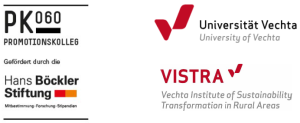Summer School in Sustainability Economics:
Experiments on Intergenerational Justice under Uncertainty
Camp Reinsehlen, Germany, 11-14, October 2015
Thematic Background
The vision of sustainability requires that development paths be equitable across and within generations, while human-made and natural resources be allocated such that none are wasted in the pursuit of increasing human well-being. Sustainability is thus essentially a normative concept. It requires taking into consideration the claims of future, not yet existing persons – also addressing trade-offs between interand intragenerational justice goals. Investigating the long-term future necessarily implies dealing with fundamental uncertainty, because uncertainty and uncertainty-attitudes affect how societies distribute resources to insure against such uncertainties.
Behavioral economics and experimental methods (in the lab and in the field) have substantially altered the way economists perceive the world and how they derive policy recommendations. For the emerging field of sustainability economics the question thus arises in what way one can and should employ experimental approaches to generate insights into a just and efficient intergenerational distribution of resources under conditions of uncertainty. Against this background, the summer school aims at developing a better understanding of how and to what extent experiments can contribute to advancing the economics and policy of sustainability.
The summer school will discuss in particular:
- How to set up experiments that generate insights into intergenerational relations and very long time horizons?
- How to set up experiments studying fundamental uncertainty?
- To what extent and how can one employ experimental observations on individual or collective behavior to improve theories of sustainability, especially with respect to the normative content of sustainability conceptions?
- What is the contribution of experimental methods for sustainability economic research, compared to modelling, non-experimental empirics, and philosophical-conceptual reflection?
- On what theoretical basis and assumptions do experiments have to rest if their results should be instructive for sustainability policy?
Concept of the summer school
The summer school is aimed at junior researchers (at the doctoral or post-doctoral level) with a research focus on the summer school’s theme, who want to engage with experts in the field in a highly interactive manner.
It brings together a small group of approximately 25 participants, including some ten eminent speakers and ten to fifteen junior researchers. The format will be that of a research-oriented workshop. While invited speakers provide keynote lectures on the topic with ample room for discussion, junior researchers present their research in shorter sessions.
For more info and call for participation of junior researchers: http://www.ere.uni-freiburg.de/content/pdf-dokumente/workshops/xiju_cfp.pdf



